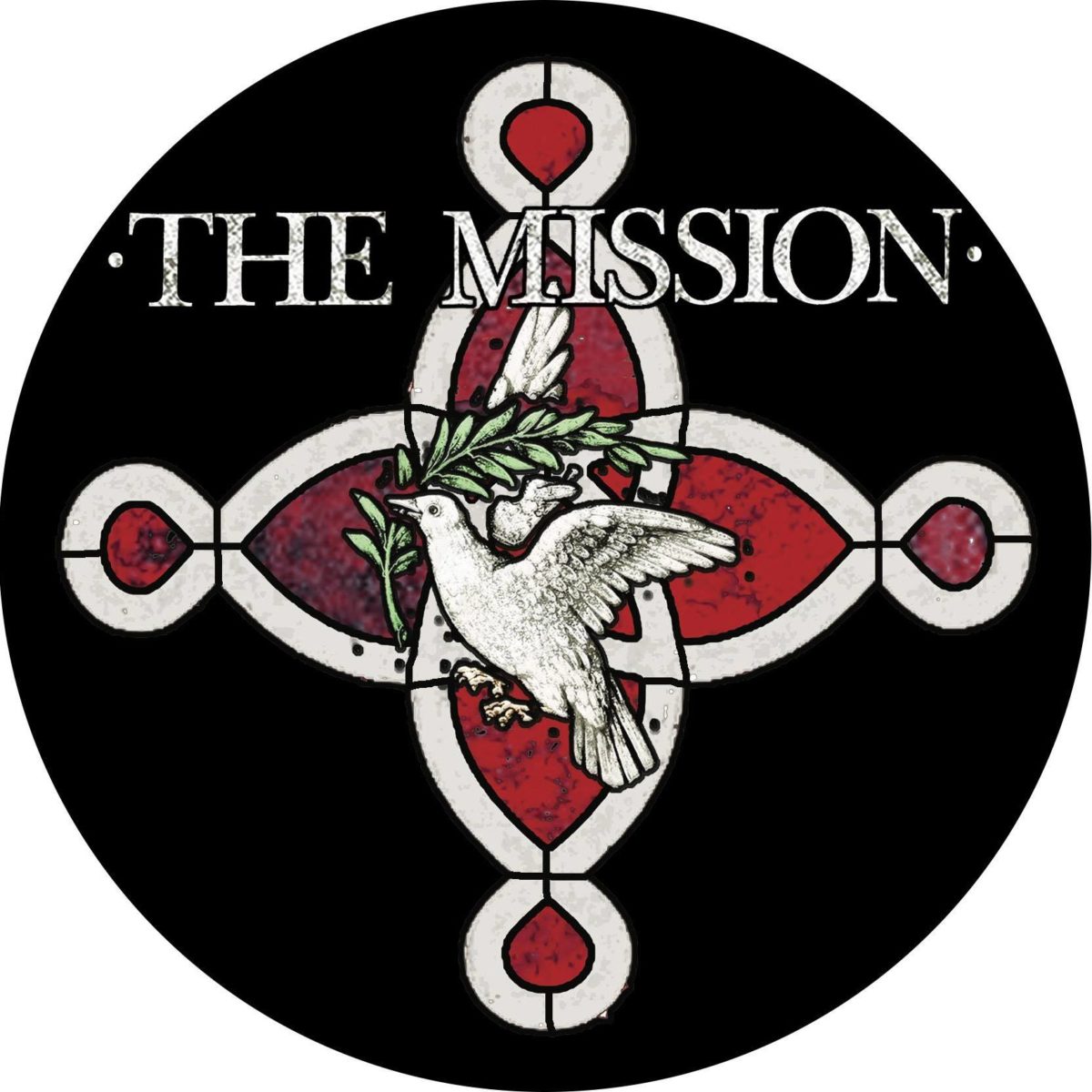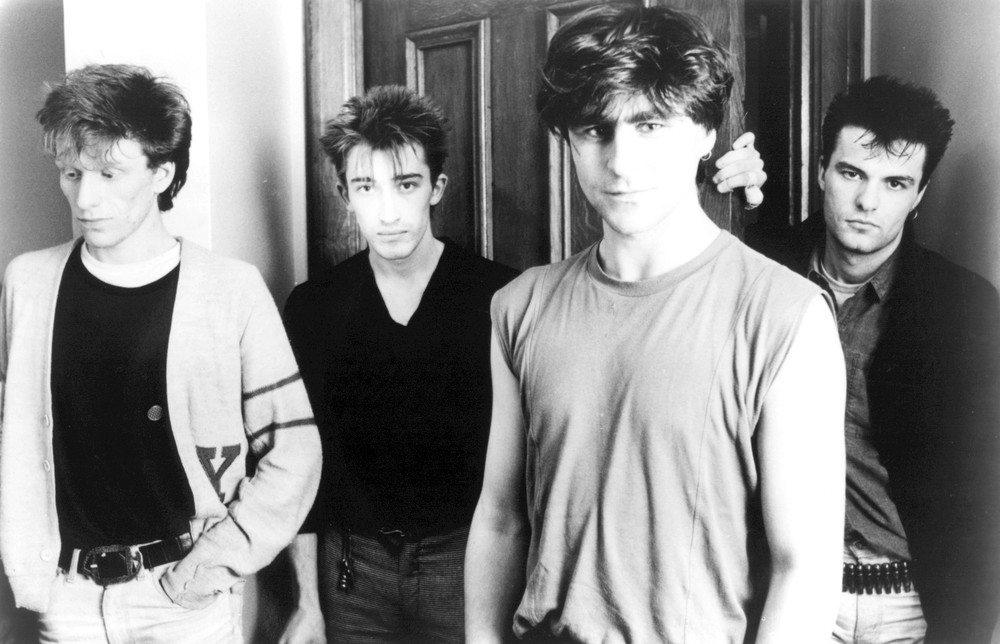The Mission (UK)

Described by critics as melodramatic and bombastic, the Mission nonetheless attracted a core audience of goth rock fans. The group was formed in 1986 by guitarist/singer Wayne Hussey and bassist Craig Adams, who both left the Sisters of Mercy to do so. (Hussey had also played with the Walkie Talkies and Dead or Alive.) The two recruited Artery guitarist Simon Hinkler and former Red Lorry Yellow Lorry drummer Mick Brown and called themselves the Sisterhood, to which Sisters of Mercy leader Andrew Eldritch objected strenuously. The Mission released two successful independent singles in the U.K. and signed to Mercury in 1986. The group soon completed its debut album, God’s Own Medicine, which went on to produce a handful of U.K. hits, while critics found much of the record to be reminiscent of Led Zeppelin and Yes. Although the band toured extensively in the U.K. and America; Adams had to return home from the latter leg after suffering from exhaustion. Produced by Led Zeppelin bassist John Paul Jones, their second album Children, widened the band’s audience, reaching number two on the U.K. album charts. 1990’s Carved in Sand shed some of the Mission’s Zep fascination for more refined songwriting. Hinkler left the band midway through the supporting tour and was eventually replaced permanently by Paul Etchells. Meanwhile, several Mission members backed Slade members Noddy Holder and Jim Lea on the Christmas charity single “Merry Xmas Everybody.” By 1992, Hussey was the only original member left; following the 1994 Sum and Substance retrospective, he recorded the 1995 album Neverland with a new Mission lineup. Blue followed a year later, with the greatest-hits retrospective Resurrection appearing in fall 1999. The 2001 album Aura was followed by a world tour that slowly saw the new line-up dissolving. By the time God Is a Bullet arrived courtesy of the 2007 version of the band, Hussey was living in Brazil. He announced that the Mission would actively promote the album through early 2008, after which he would be focusing on solo work. His first release to fall into this category was Bare, a Hussey album largely made up of cover versions which appeared before the end of that year. Next, an album of outtakes from the God Is a Bullet sessions was issued in 2010, under the name Dum-Dum Bullets, before Curios — an album of covers and original material — appeared in 2011 under the Hussey & Regan moniker, re-kindling Hussey’s creative relationship with the All About Eve founder Julianne Regan. For much of 2011 and 2012, Hussey appeared live under the Mission name in celebration of their 25th anniversary, and in September 2013, the band released a new album, Brightest Light. Three years later they released their 11th studio album, the 12-string heavy Another Fall from Grace, which Hussey described as the “lost link between the Sisters of Mercy’s First and Last and Always and the Mission’s own first album.” ~ Steve Huey & James Wilkinson
Theatre of Hate

Gothic post-punks Theatre of Hate formed in Britain in 1980; led by singer/songwriter Kirk Brandon, formerly of the Pack, the original group also comprised guitarist Simon Werner, bassist Jonathan Werner and drummer Jim Walker. Immediately recognized as one of the era’s premier live acts, Theatre of Hate debuted in 1981 with the concert LP He Who Dares Wins Live at the Warehouse Leeds; soon after, Brandon dismissed the remainder of the group, assembling a new line-up comprising guitarist Billy Duffy, bassist Stan Stammers, saxophonist John Lennard and drummer Nigel Preston (who was soon after replaced by Luke Rendle). Another concert recording, Live at the Lyceum, followed in 1982 before Theatre of Pain entered the studio with producer Mick Jones of the Clash to record their proper debut, Westworld; the album went on to reach the UK Top 20, also launching the Top 40 single “Do You Believe in the Westworld?” He Who Dares Wins Live in Berlin followed in late 1982, but by this point the group was beginning to disintegrate, with Duffy exiting to form the Cult; a second studio album, Aria of the Devil, was recorded but went unreleased. By 1983, Brandon had founded a new unit, Spear of Destiny.
Chameleons

The atmospheric pop band the Chameleons formed in Manchester, England, in 1981 from the ashes of a number of local groups: vocalist/bassist Mark Burgess began with the Cliches, guitarists Reg Smithies and Dave Fielding arrived from the Years, and drummer John Lever (who quickly replaced founding member Brian Schofield) originated with the Politicians. After establishing themselves with a series of high-profile BBC sessions, the Chameleons signed to Epic and debuted with the tense, moody single “In Shreds,” produced by Steve Lillywhite and released in March 1982. The quartet was soon released from its contract with Epic, but then signed to Statik and returned in 1983 with the band’s first full-length effort, Script of the Bridge. What Does Anything Mean? Basically followed in 1985, and with it came a new reliance on stylish production; following its release, the Chameleons signed to Geffen and emerged the following year with Strange Times. The dark, complex record proved to be the Chameleons’ finale, however, when they split following the sudden death of manager Tony Fletcher; while Burgess and Lever continued on in the Sun & the Moon, Smithies and Fielding later reunited in the Reegs. In 1993, Burgess surfaced with his proper solo album Zima Junction. He and his band the Sons of God toured America the following year. As the ’90s came and went, the four members of the Chameleons UK continued to work on music and see one another on a personal basis. While their own musical projects kept them busy, a reunion was practically inevitable. The Chameleons reconnected in January 2000 to prep for three May dates in England. The acoustic-based, self-released Strip was available by showtime and for a limited time only. Additional European dates followed throughout the summer, and by fall the Chameleons UK played their first American shows in nearly 15 years. Several live efforts appeared shortly thereafter. Why Call It Anything? (2001) marked the Chameleons’ first studio album since 1986’s Strange Times. This Never Ending Now appeared two years later. ~ Jason Ankeny, Rovi

